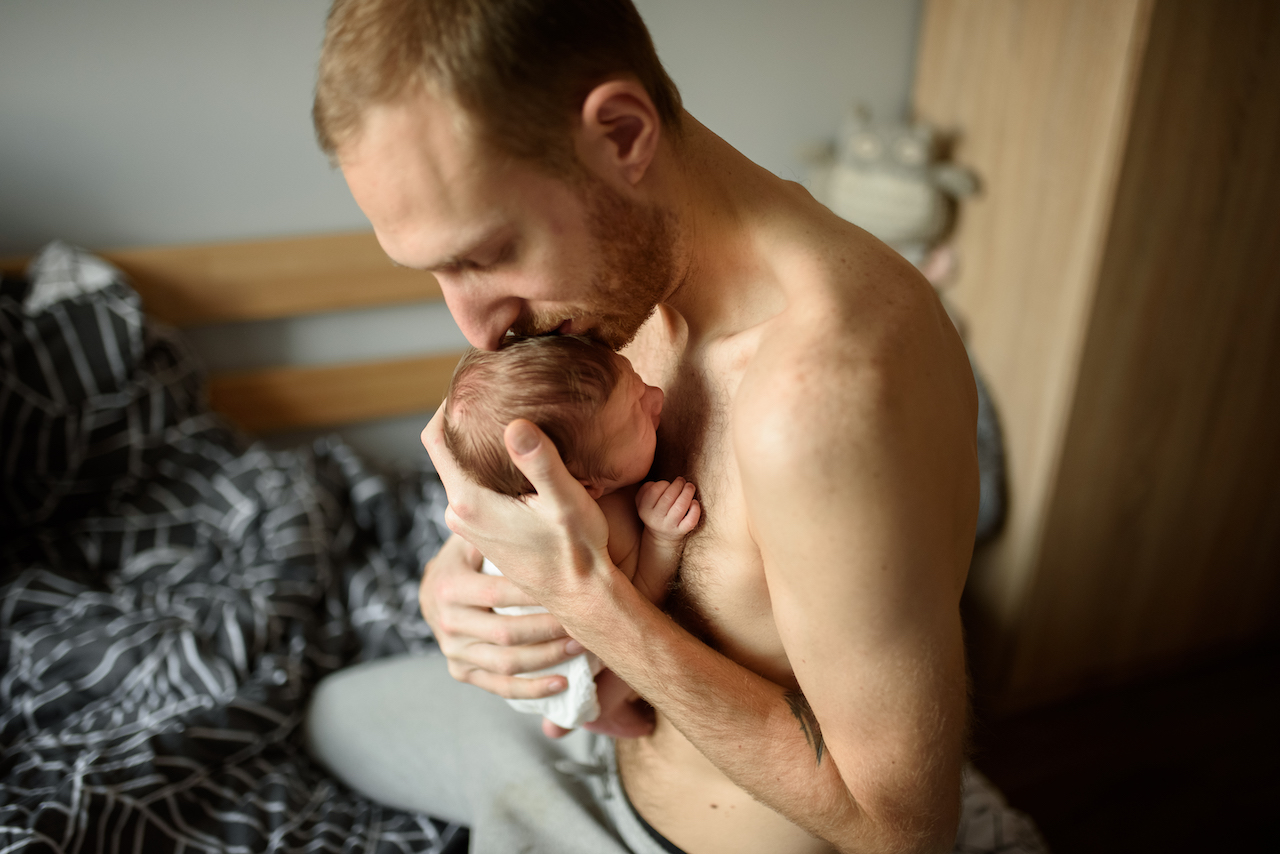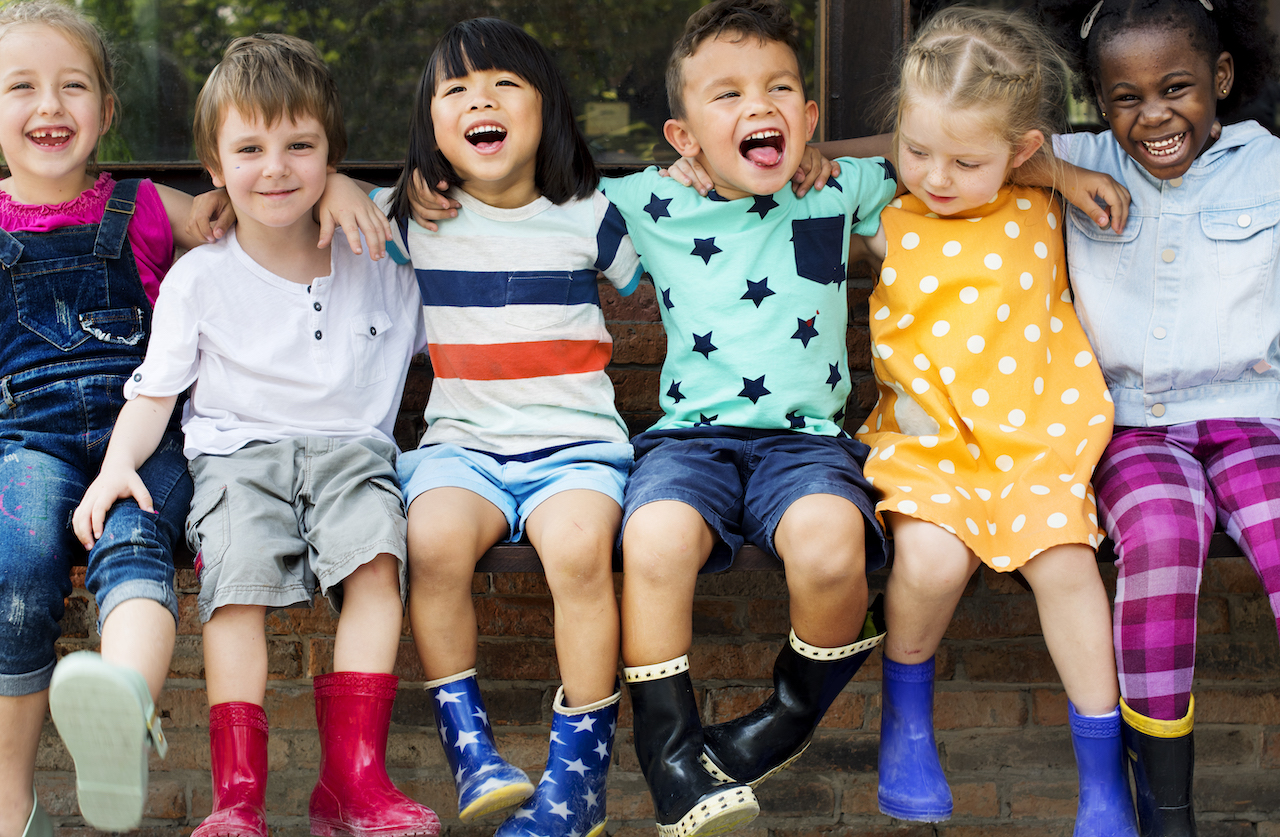
Ask DadPad, Mental Health
Ask DadPad: How do I support my child’s emotional growth?
Posted on 11th February 2022
This week is Children’s Mental Health Week which, this year, has the theme of ‘Growing Together’, encouraging children and adults to focus on emotional growth and to consider both how they have grown and how they can help others to grow.
The importance of your role as dad
Highlighting the important and unique role that a dad has in developing positive long-term mental health in their baby and child is something we’ve always done. For example, in our ‘Your role in your infant’s mental health‘ blog post, we looked at a YouTube video by psychologist and child development expert Dr Lisa Damour in which she encouraged parents to:
…start thinking about your child’s mental health right from the moment you meet. From the very beginning, your child will look to you for love, learning and safety. When you provide your child with a warm and tender relationships, help them to feel protected, comfort them when they’re upset and help them navigate the world, that’s how you lay the groundwork for a lifetime of mental health.
Further blog posts explore some of these points in more detail, such as the articles we’ve written on the importance of forming – and how to form – a secure and loving attachment (or bond) with your baby. As we explained in our ‘Infant Mental Health and the importance of secure attachment‘ article:
A child or person that has benefitted from a secure attachment will be more ‘protected’ from the challenges which will come with life. Although no guarantee of lifelong good mental health, the securely attached child will have the ‘toolkit’ in place to be more resilient, confident and adaptable when coming up against difficult situations; they are also more likely to have good self-esteem, self-control, and the ability to empathise with others. Importantly, because of all of this, they will be better able to thrive and take full advantage of all opportunities – especially in terms of education – that they receive in life.
And – as evolutionary anthropologist and expert in the science and anthropology of fatherhood, Dr Anna Machin, has explained – the bond between dad and baby/child is a special and unique one:
In the first instance, the attachment between the mother and the child is inward-looking, exclusive, based on affection and care. The dad’s attachment is also, obviously, capable of being affectionate and caring but on top of this there’s an extra bit: his job is to challenge, to be the secure base from which the child goes out into the world to investigate what is going on. His role is to teach the skills – behavioural, linguistic, cognitive – that will enable that child to deal with life’s challenges, assess its risks, and leap over those hurdles; to deal with failure, but also with success. We live in the most complex social and technological world, and dad’s job is to turn the child’s face to that world and say: “Here is the world and I am going to teach you how to be successful in it”.
There are, of course, lots of ways in which we can help build and develop a strong bond with our children, right from Day One (never believe the old adage that dads can’t bond with baby until they’re old enough to sit up and/or interact with you!) – including: lots of cuddles, skin-to-skin and other sensory interaction (such as baby massage), all of which helps with the release of ‘happy hormones’; getting hands on with baby care, such as nappy changes, bathing, cleaning and sling walks; and play, communication and other interactions, all of which will help their brain development.

Physical and educational development
As new parents, we probably all know – to a greater or lesser extent – that we need to help and ensure that our child meets their key physical developmental milestones, not least because this is a common thing to be quizzed about by those around us. How many times, for example, have you been asked: “Have you had a first smile yet?”, “Is he walking?”, “Does she sleep through?” and/or “Have you started potty training yet?”? All those questions – and many more besides – relate to those aspects of child development that we’ve all been almost unknowingly trained to know about, look out for and ask after.
Most of us probably also recognise that – in time – we’ll need to look out for and help develop our children’s academic and educational development, too. You might do it without knowing that’s what you’re doing, but you probably still do it. Counting rhymes, such as “1-2-3-4-5, once I caught a fish alive” and “Baa baa black sheep”, for instance, all help our children learning about numbers, in the same way that singing the ‘alphabet song’ introduces letters. Watching child-focused TV programmes together – many of which will have an educational theme – is also helping them pick up on key ‘school stuff’, and we can add to this learning by doing so many other simple and straightforward things, such as: reading books and stories together; looking for and pointing out letters and numbers (e.g. on street signs, house numbers, shop signage, etc) whilst out on walks; and counting everyday items together around the house (“how many socks have we got in the laundry basket?”, “how many teddies are sitting on your bed?”, etc).
But there’s much more to being a ‘school ready’ and successful child than hitting their key physical milestones and being able to keep up academically in class…

The importance of emotional growth and development
It’s becoming increasingly acknowledged and accepted that there’s actually something a lot more important than ‘knowing your letters and numbers’ before your child starts school (not least because the teachers will be fully expecting to teach this all from scratch), and that’s to ensure that they are socially and emotionally developed and ready.
An article by Claire Lindsay, and published just this week in https://metro.co.uk, questions society’s valuing of academic intelligence over emotional intelligence and wellbeing, making a number of key points in support, including:
- that children with higher levels of emotional intelligence actually often perform better under stressful situations and therefore stand a better chance of succeeding in their chosen career;
- that children with higher levels of emotional intelligence develop greater empathy for themselves and those around them;
- that skills developed from emotional intelligence can help children to better manage conflict; and
- that skills developed from emotional intelligence can help children develop deeper, more meaningful and longer lasting friendships.
These points, of course, support the information above about the benefits of forming a secure attachment with your child – it will give them the best chance of being able to cope with all that life will inevitably throw at them, and have the skills in place to take advantage of all the benefits that come their way.
This supposition is again reflected in a study by the Educational Policy Institute from last November (cited in Lindsay’s article) which “found that a child’s social and emotional skills at a young age and in primary school may predict lifelong success. Children who were able to share, cooperate, and follow directions at a young age… were more likely to obtain higher attainment standards. Thus, emotional intelligence is widely believed to come hand in hand with academic progress; but with much less obvious pressure on the child. Developing emotional intelligence in early childhood is likely to lead to far fewer experiences with depression and other mental illnesses into adulthood.”
Without those skills and wellbeing, children can become anxious, upset and have difficulty coping – both at school and in wider life – something that has become even more apparent in the last few years, with the pandemic and all the changes to everyday life that this has had on us all, but especially our children. Indeed, research by Place2Be and the National Association of Head Teachers, published ahead of this year’s Children’s Mental Health Week, found that:
- 95% of teaching staff in primary and secondary schools have noticed increasing levels of anxiety amongst their pupils since the start of the school year in September;
- 86% have noticed an increase in low self-esteem;
- 76% have seen an increase in depression; and
- 68% have seen an increase in sustained feelings of anger.
When you add in the statistic quoted this week by the Rethink Mental Illness charity that 75% (three-quarters) of all diagnosed mental illnesses develop by the time that we are 18-years-old, it becomes especially important that – now more than ever – we help our children to become as emotionally resilient as possible.

So how do I help my child develop good emotional wellbeing?
Now that we’ve hopefully convinced you – if, even, that was needed – that it’s hugely important to help our children develop good emotional wellbeing and intelligence, it’s crucial to consider the best ways that we can do this.
Obviously, as already noted, Step 1 is of course to work (because, yes, sometimes work is needed) to develop a strong and secure attachment with your baby from the very start of their life, so that they feel safe, loved and ‘heard’, all of which also enables their brains to continue to develop positively.
But – especially as they grow – we need to do more than ‘just’ having formed a bond with them.
The children’s mental health charity, Place2Be – who organise Children’s Mental Health Week each year – have, for example, identified five simple ways (which we’ve then explored in more depth and in our own words) in which we, as parents, can support our children’s emotional growth:
1. Talk about when your child was younger
Reflecting back on earlier times – as well, of course, as strengthening and developing your parent-child bond – is a key way of helping your child learn and appreciate how much they have grown, developed and changed. Obvious points of development include not being able to dress themselves, not being able to ride their bike, not being able to walk etc. These discussions are also a way of letting them know how proud you are of all that they have achieved, even what might otherwise be seen as ‘the little things’, like befriending the new boy at school, or standing up and speaking in class assembly. Replanting these positive memories in their minds will also hopefully boost their self-esteem, and help them focus on positives, and how strong/resilient/capable/kind/etc they are.
2. Notice when your child has developed and grown
We’re obviously not simply talking about growth in terms of height here, but emotionally. Praise them every time they choose to do something differently to how they’ve done it before, or when you notice a change in their behaviour: for example, “I’m really proud that you chose to walk away from that fight with your sister today – it’s not something I’ve seen you do before”, “It was really good to see you offering to share your toys with your friend this morning – see how happy that made him” or “How proud am I that you asked if you could join in and play with Jenny today – that was really brave of you!”.
3. Encourage your child to try new things
The key point which Place2Be emphasise here is praising your child from stepping outside their comfort zone, rather than how ‘well’ or how ‘good’ or how successful the attempt went, as this is what will give them the confidence to keep on trying. Whether it’s eating a new food, trying a new experience, or joining in with a new activity, being encouraged to give things a try is really important.
4. Listen to your child’s hopes and dreams for the future
Taking time to listen to and properly ‘hear’ your child is always important. Use what you learn to help your child to better appreciate how little steps today can enable them to achieve bigger things in the future, and to see how they might be developing key qualities even now. Being kind to another child in their class is something that might help them become a teacher, or a counsellor, or a nurse, for example. And encouraging them to be resilient and apply themselves to achieve their dreams is also a good thing – if you want to be a rock star, for example, then you will need to keep practicing playing your guitar! Praising each little step, each minor success and each little ‘win’ (“Well done – you’ve done 10 minutes practice this evening, even though you didn’t really want to, and look how much better you now are at playing that song!”) will really make a big difference to them, too.
5. Support your child to learn from tough situations
This is a key point for us all. It’s relatively easy to remember to boost your child’s self-esteem when things are going well and you can easily spot things to praise. But when they’re struggling, and things seem to be going against them, or they’ve possibly ‘messed up’ a little bit, it can be more challenging. What we need to do here – and this is just as important in our conversations and relationship with ourselves, as it is with our children – is look for the good and for the point of learning. Yes, acknowledge with your child the difficult feelings that they are experiencing (“I can see how cross you are feeling about this – I think I would be, too!”, “I know and understand how upset you are”, or “It must feel really disappointing…”), so that they can see and feel that you are fully appreciating and validating their emotions, but also help them to see that this is an experience from which they can learn. Talk, for example, about how they could do things differently if the same situation arose again (e.g. a falling out with their friend), or how they could take steps to prevent it from recurring (e.g. if they got an outcome in a school project or task which disappointed them), or how they could respond in a different way (e.g. if they hit a friend who took one of their toys without asking). These learning experiences will all help them to further develop their emotional intelligence and wellbeing, which will in turn enable them to cope with life’s ups and downs in a more positive and resilient manner.
Other ideas and suggestions, from Lindsay’s article, include:
Helping your child label their emotions
Asking your children how they are feeling, sharing with them how you are feeling, and introducing to them ideas about the different emotions that they might be experiencing (creating, for example, a ‘mood board’ for younger children – similar to a ‘weather board’ – with symbols and words from which they can pick and identify the feelings that they are currently experiencing) can all help your children to become more emotionally literate. Being able to identify, name and share with others how you are feeling is an enormous advantage and, from there, you can also share ideas on how to cope with different emotions.
Modelling behaviour
As also emphasised by Place2Be, as a parent, you are “…an important role model for your child“. This does not, though, mean that you need to try and be ‘perfect’ and/or to hide from them any negative emotions that you might be experiencing. Seeing you make mistakes is ok, but what is important is that they then see you learn from them, and to continue to develop and grow emotionally; conversely, role-modelling unhealthy relationships or coping mechanisms will only lead to your children copying and repeating the same patterns.
Developing problem-solving skills through play
It’s all too easy to undervalue the importance of play as a means of learning. So many of us – and/or are parents – have been conditioned to believe that ‘proper learning’ can only take place sitting at a desk, with a pen and paper in front of us. However, playing with our children is an amazing and really important way for them – and us! – to learn. Playing imaginative games, with dolls and soft toys, for example, dressing up or playing hide and seek can all help them explore their emotions, ‘test out’ appropriate ways to react in different situations, experience more challenging emotions in safe environments alongside someone they can trust, and learn new skills. Getting down on the floor and playing alongside your child is also a key way for you to better appreciate their world, through their eyes, and to consolidate your bond.
You can find further information and gain more ideas on how to support your child’s emotional growth via the Place2Be Children’s Mental Health Week 2022 parents and carers webpage.
One other resource is the Mental Health UK Parenting Hub on Clic, recommended this week by Rethink Mental Illness as a support for parents in managing their children’s mental health, as well as their own.
Further reading and references:
Lindsay, Claire (2022) “How to prioritise children’s emotional intelligence – and why it’s important”. In The Metro online: https://metro.co.uk/2022/02/07/how-to-prioritise-childrens-emotional-intelligence-and-why-its-important-16057884/
Mental Health UK: https://mentalhealth-uk.org/
Place2Be Children’s Mental Health Week 2022 resources: https://www.childrensmentalhealthweek.org.uk/
Place2Be News Article (2022) “School staff witness an increase in pupil anxiety, low self-esteem and depression”. Online: https://www.childrensmentalhealthweek.org.uk/news/school-staff-witness-an-increase-in-pupil-anxiety-low-self-esteem-and-depression/
Parenting Hub on Clic: https://parentinghub.clic-uk.org/
Rethink Mental Illness: https://www.rethink.org/

